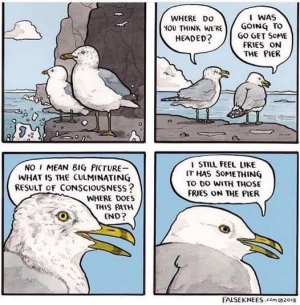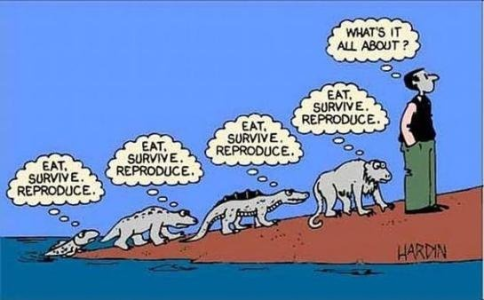***WARNING: Long-winded ramble. Sorry***

The exclusionary tone of the statement "all men are brothers" is, alas, common to other famous statements, such as:
- Do not trust all men, but trust men of worth; the former course is silly, the latter a mark of prudence. (Democritus)
- Nearly all men can stand adversity, but if you want to test a man's character, give him power. (Abraham Lincoln)
- All men seek happiness. This is without exception. Whatever different means they employ, they all tend to this end. (Blaise Pascal)
- And, of course, "All men are created equal".
Perhaps the closest we come to Gandhi's sentiment in Western thought comes from Thomas Pain: "The World is my country, all mankind are my brethren, and to do good is my religion."
The problem inherent in the words "man", "men" and "mankind" was not as apparent before the 20th century as it was after. Then, "mankind" included everyone, without exception or distinction. Remember John Donne: "Any man's death diminishes me,
because I am involved in mankind." If I were to say, for instance: "World peace, if could be achieved, would be a boon to all mankind", no-one could argue that I was being exclusionary.
Putting that to one side: Gandhi did not always believe in the statement that "all men are brothers". In his earlier years, working as a young lawyer in South Africa, Gandhi sought to "prove the superiority" of the 'Indian race' over the African one. He only came to change his mind on this gradually. Gandhi's views on sexuality and gender, and on the caste system, are also deeply controversial and troubling.
However, there is no denying that his polity of nonviolence, peaceful noncooperation, and Sarvodaya (a grassroots movement that applies Buddhist principles to social and economic development) were very powerful.
To answer your questions:
Is it true that all men are brothers? (I realize the exclusionary tone of this question. Women count, too.)
This depends on your view of the world. "All men are brothers" is the essence of Sarvodaya, which is similar to Humanism, a philosophy that I also try to follow. My essential creed is this:
- A trust in the scientific method when it comes to understanding how the universe works, and rejection of the supernatural;
- Making ethical decisions based on reason, empathy, and a concern for human beings and other sentient animals;
- The belief that human beings are capable of being ethical and moral without religion
and without imposing their beliefs on others.
Personally, I believe in the flight of birds and the sublime geometries and the beauty in everything. I am, in short, a spiritual agnostic: I believe in interconnectedness and universal consciousness without ascribing them to, or prescribing them from, an unknowable deity.
What is stopping them from acting like brothers? What impedes them? Why does is seem like all are enemies?
To come back to Sarvodaya, and the earlier truths of Buddhism:
- Dissatisfaction is an inherent aspect of our material existence — that is the First Noble Truth.
- Desire is the source of dissatisfaction, and is inextricable from it — that is the Second Noble Truth.
- Renunciation of desire will bring an end to one's dissatisfaction — that is the Third Noble Truth.
- The Noble Eightfold Path is the way by which one can renounce desire, end dissatisfaction, and attain enlightenment — that is the Fourth Noble Truth.
To put it more simply:
- Men are dissatisfied with their lives. "I'm bored" or "I'm miserable".
- Men compare their lives with those of others, and desire them. "I wish I had what my neighbour has" becomes "I'm miserable
because I don't have what my neighbour has."
- Men do not renounce their desires, even when they should. Rather than "Even though I don't have as much as he does, I am happy" becomes "I
should have what my neighbour has. I will go and take it."
... and this is where the system breaks down. Our desire for more, and our disinclination to renounce our desire, leads to conflict and produces enemies.
Should we just ignore politics and conclude it’s just the closest relationships that count?
Ignoring politics will not help; ultimately, politics affects us all (except, of course, people who never read or watch the news).
But I am not advocating political resistance, peaceful or violent. We can start in the workplace and at home by asking "How are you?", listening, and empathizing. This simple act of connection is a powerful tool.
If your work colleague, or a family member, seems distracted or in pain (physical or emotional) -- ask: "Are you OK?", offer them to take a break, take them to the kitchen, share a cup of tea, and talk. This simple act of kindness will bring rewards.
Another simple tip is Dale Carnegie's first principle: "Don't criticize, condemn, or complain." I always found this useful in avoiding negativity and judgment in interactions with others. Complaining is contagious, condemnation is hurtful, and criticism creates resentment and makes people defensive.
Instead:
- Acknowledge and appreciate the good qualities and efforts of others.
- Try to see things from the other person's point of view.
- If there's a problem, work together to find a constructive solution rather than dwelling on blame.
Phew! I'm sorry that was so long.

I hope you found some useful things here, and thank you for putting up with my long-winded ramble.



